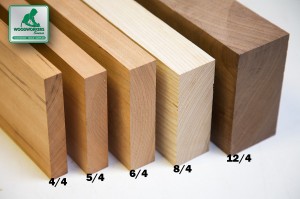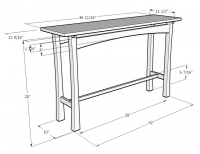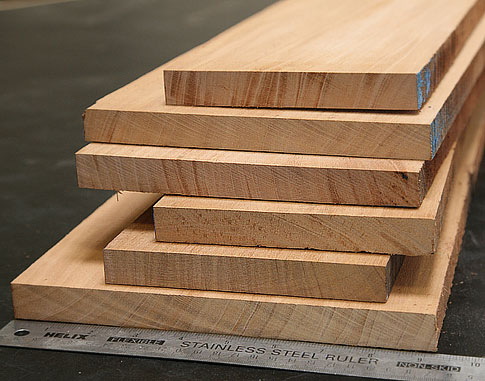
$7.00 /Each
mix/match strips and squares
(48 U.S. Ground)
Delivery & Pick-Up Options
Log in to see delivery dates
Ready NEXT DAY - Tempe, Phoenix or Tucson
Schedule it during checkout
- Delightful natural color
- Food safe
- Kiln Dried
Why Choose Purple Heart?
Grain usually straight often with a fine curly figure. Fine texture. Moderately hard to work but takes a glossy, lustrous finish. Lacquer finish will best preserve the color. Also called Amaranth or purpleheart.
You're in excellent hands with these cutting board strips, expertly cut from premium kiln-dried lumber. They come prepped and ready for you to rip, cut, and arrange into beautiful color combinations and patterns, allowing you to craft your own custom, handcrafted cutting board with ease.
PRO TIP
Expect to do a little prepping to any surfaces you'll glue together
| Thickness | Choose 3/4" or 1-3/4" |
| Width | 1-3/4" |
| Length | 18" |
| Grade | Kiln dried, clear |
Woodworkers Also Recommend These
5.02
lbs /Bd. Ft.Wood Texture
Ease of Finishing
Dull gray brown when freshly cut but soon oxidizing to a violet purple.
A tall tree 120 feet or more, producing a long, straight trunk about 36 inches in diameter.
Purpleheart, Amarante, Amaranth, Guarab, Koroboreli, Morado, Nazareno, Palo morado, Pau roxo, Pelo morado, Purperhard, Saka, Sakavalli, Tananeo, Violetwood
Industrial construction, flooring, tool handles, accessories, furniture, cutting boards, musical instruments, picture frames, jewelry, jewelry boxes
The Joys of Building with Great Woods
Understanding hardwood lumber starts right here with these wacky fractions.
If you're expecting perfect clear lumber 100% of the time, you're in for a surprise. Here's a summary of the hardwood lumber grades and what to expect from them.
Board feet isn't your everyday kind of math, but these three simple steps make it easy to figure out your project.
Here's a handy (and free) Excel worksheet that helps you estimate the lumber needs for your project.
Are woods poisonous? Hazardous to use in cutting boards or baby cribs? Find out here.
Wood is like a sponge, and it's always in a state of absorbing or releasing moisture to stay equalized with its environment. The problem with that is it also swells and shrinks. Here's what you need to know to protect your project.















